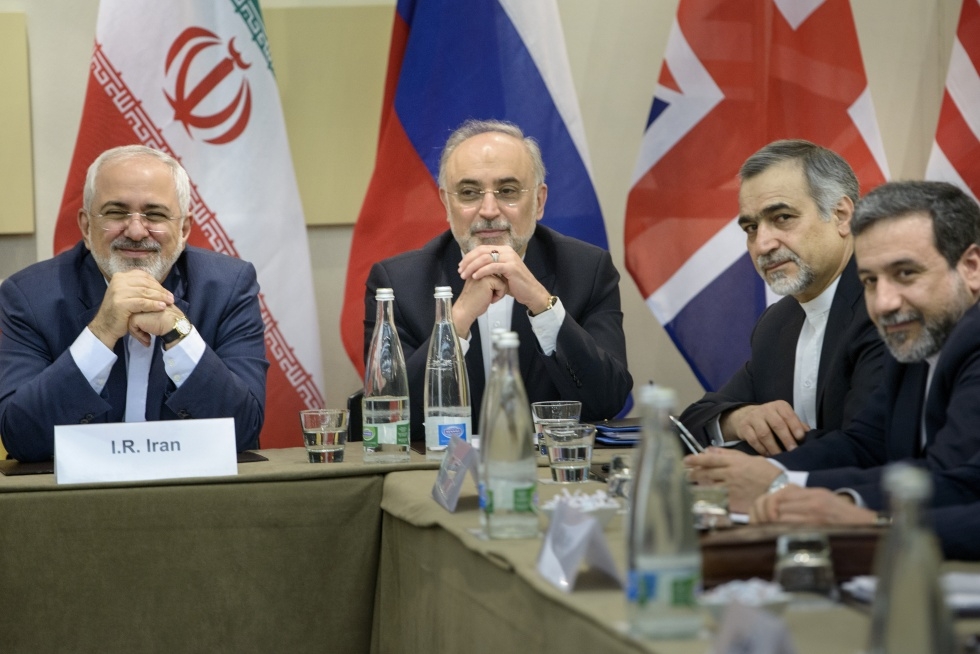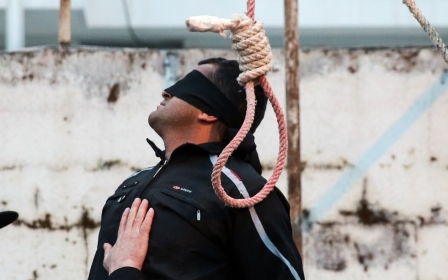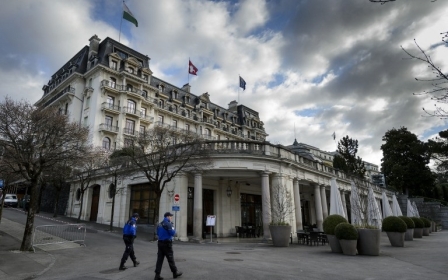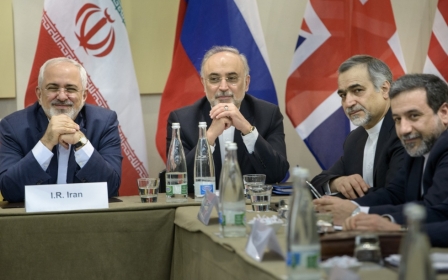Iranian negotiator says 'problems' remain in talks

Iran's chief nuclear negotiator Abbas Araghchi said on Wednesday that "problems" remain in nuclear talks with world powers and there can be no deal without a "framework for the removal of all sanctions".
In a live interview with state television from the talks in Switzerland, Araghchi said that "until we have solutions to all problems we cannot have a comprehensive agreement," naming sanctions and research and development of advanced centrifuge machines as key stumbling blocks.
He said a joint statement on progress made in recent days would be issued later on Wednesday in Lausanne, where the negotiations are taking place.
The comments came after Iran and the P5+1 powers -- Britain, China, France, Russia and the United States plus Germany -- missed a 31 March deadline for a political deal meant to pave the way to a final agreement over the Islamic republic's disputed nuclear activities.
Araghchi said the two sides had begun drafting key details on some issues for the basis of an agreement but Iran would not be rushed into concluding the long-running negotiations.
"We won't let time bind us in the talks," he said. "Time is important to us but the content of the negotiations and our demands are more important."
He said Iran's future plans to use more advanced centrifuges -- the machines that enrich uranium gas by spinning it at supersonic speeds -- was an unresolved issue.
"Sanctions are one of the key issues, and in regard to Iran's nuclear programme the subject of research and development is another key issue that we insist on.
"For sure our research and development of advanced centrifuge machines should continue."
Centrifuges are used to purify uranium for nuclear power generation, but they can also enrich it to higher purities for use in an atomic weapon, which Iran denies pursuing.
With hopes of an agreement hanging in the balance, Araghchi said nothing should be read into the departure from Lausanne of the Chinese, French and Russian foreign ministers.
"They had some other commitments," he said. "The talks will go on as long as necessary."
Earlier on Wednesday Russian Foreign Minister Sergei Lavrov said an agreement had been reached “in principle”.
"One can say with relative certainty that we at the minister level have reached an agreement in principle on all key aspects of the final settlement of this issue," Russian media quoted Lavrov as saying at talks in Switzerland.
On Tuesday US President Barack Obama conferred with key national security advisors about the talks, amid speculation of a deal close to being agreed.
"Tonight, the president convened a secure video teleconference with members of his national security team," said National Security Council spokeswoman Bernadette Meehan, who participated in the discussions.
China's foreign minister on Wednesday urged both sides to make compromises as nuclear talks between Iran and world powers entered a seventh day in Switzerland after missing a midnight deadline for a framework deal.
"While each party has its own position, in this final phase, all parties must be prepared to meet each other halfway in order to reach an agreement," Wang Yi said in a four-point proposal distributed to journalists in Lausanne.
Low on detail?
Under the final accord, the powers want Iran to scale back its nuclear programme to give the world ample notice of any dash to make the bomb by extending the so-called "breakout" time.
But the question is how much detail will be in the framework accord that Iran and the six powers - the US, China, Russia, Britain, France and Germany - want to nail down.
If it falls short of firm commitments by Iran then US President Barack Obama will find it hard to fend off attempts by his Republican opponents to pass fresh sanctions on Tehran.
Iran's negotiators are also under pressure from their own domestic hardliners not to give too much away and for President Hassan Rouhani to deliver on his promises to secure the lifting of sanctions.
Fresh US sanctions could therefore torpedo the whole negotiating process that was launched after Rouhani became president in 2013.
Republicans fear that since some of its nuclear infrastructure will likely stay intact, Iran will still be able to get the bomb - a concern shared by Israeli Prime Minister Benjamin Netanyahu, whose country is widely assumed to have nuclear weapons itself.
Netanyahu on Wednesday decried what he believed to be a bad deal being negotiated with Iran in Switzerland.
"The concessions offered to Iran in Lausanne would ensure a bad deal that would endanger Israel, the Middle East and the peace of the world," Netanyahu said of ongoing negotiations in Switzerland.
"Now is the time for the international community to insist on a better deal," he added.
"Iran's insistence on keeping underground nuclear facilities, advanced centrifuges and a heavy water reactor" showed its nuclear programme was not solely for peaceful purposes as claimed by Tehran, Netanyahu said in a statement.
The Israeli premier also cited an Iranian general who declared that "Israel's destruction is non-negotiable".
"Evidently, giving Iran's murderous regime a clear path to the bomb is negotiable. This is unconscionable,"Netanyahu said.
To Netanyahu, a "better deal" would "significantly roll back Iran's nuclear infrastructure" as well as "link the eventual lifting of the restrictions on Iran's nuclear program to a change in Iran's behaviour."
Middle East Eye propose une couverture et une analyse indépendantes et incomparables du Moyen-Orient, de l’Afrique du Nord et d’autres régions du monde. Pour en savoir plus sur la reprise de ce contenu et les frais qui s’appliquent, veuillez remplir ce formulaire [en anglais]. Pour en savoir plus sur MEE, cliquez ici [en anglais].




